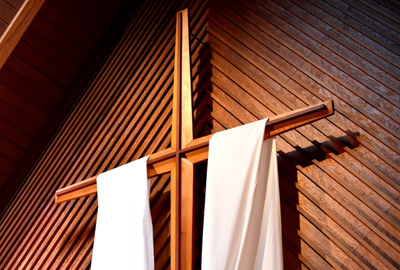As we move towards year-end, it is fitting that we look back with gratitude on our experiences of God’s mercy to us as individuals and as a unit. These experiences of God’s mercy make it possible for us to look forward to the future with great hope and confidence trusting that the One who has accompanied us “all the way to this place” will remain with us. “The Lord goes before you and will be with you; God will never leave you nor forsake you. Do not be afraid; do not be discouraged”. (Deut: 31:8).
Pope Francis in his letter announcing the year of Consecrated Life speaks powerfully of the need for hope in a world where problems seem insurmountable and beyond our capacity to resolve – climate change, destruction of the environment, poverty and inequality, war and religious conflicts, food and water insecurity….the list is endless.
We have much to be thankful for: our life-giving charism which has sustained us and which continues to be generative in a world that longs for unity and peace; the example of all those who have gone before us, sisters and brothers who spent themselves in loving service to Jesus Christ and his Gospel; the openness with which we have embraced change and responded creatively to the new calls coming from a rapidly changing world, especially the calls from those who are displaced and those fleeing from war-torn countries. We thank God for the commitment of all our members to explore more deeply the richness of our charism with the help of the international teams of participation and we look forward to a future full of hope. “I know the plans I have for you; plans of peace and not disaster; plans for a future full of hope”. (Jeremiah 28:11).
The Pope acknowledges also the difficulties facing religious life today but he says: “it is precisely amid these uncertainties, which we share with so many of our contemporaries, that we are called to practice the virtue of hope, the fruit of our faith in the Lord of history, who continues to tell us: “Be not afraid… for I am with you” (Jer. 1:8). He reminds us that our hope is not based on numbers or our accomplishments but on the One “in whom we have put our trust (2 Tim 1:2) and for whom nothing is impossible (Luke 1:37).
He continues “This is the hope which does not disappoint; it is the hope which enables consecrated life to keep writing its great history well into the future. It is to that future that we must always look, conscious that the Holy Spirit spurs us on so that God can still do great things with us”.
He exhorts us: “So do not yield to the temptation to see things in terms of numbers and efficiency, and even less to trust in your own strength…..I urge you not to join the ranks of the prophets of doom who proclaim the end or the meaningless of the consecrated life in the Church today.” Rather we must be constantly watchful and alert and go forward with great trust in God
With Mary during the Advent season, we await the birth of Jesus in joyful hope. Hope is a recurring theme in the Christmas story. It is the hope for salvation that depends on a young woman’s “yes” to God. It is the hope for salvation that doesn’t rely on powerful kings and armies but on a little helpless baby in a straw-filled cradle. It is the hope that inspires a young mother to utter what has been called the most revolutionary Advent hymn ever sung. “This is not the gentle Mary whom we sometimes see in paintings; this is the passionate, surrendered, proud, enthusiastic Mary who speaks. This song is a hard-hitting strong, inexorable song about collapsing thrones and humbled lords of this world, about the power of God and the powerlessness of humankind” (Bonhoeffer “The Mystery of Holy Night”). It is a song that gives hope to all who struggle, to those who have been oppressed; to the abused and abandoned and to the asylum seekers facing an uncertain future at the hands of inhospitable governments.
Author, Jungian analyst and poet Clarissa Pinkola Estes tells us that we must never lose heart in the face of difficulties and she adds “there can be no despair when you remember why you are here on Earth, who you serve, and who sent you here. The good words we say and the good deeds we do are not ours. They are the words and deeds of the One who brought us here”.
As the New Year approaches may we be filled with great hope enabling us to see the presence of God even when God may seem absent. May we like Mary confidently say our “yes” to God even at those times when it seems that God is asking the impossible of us. May we continue to dream our Founder’s dream of a “new society” and work towards the realization of that dream.
Sr. Gemma Corbett

